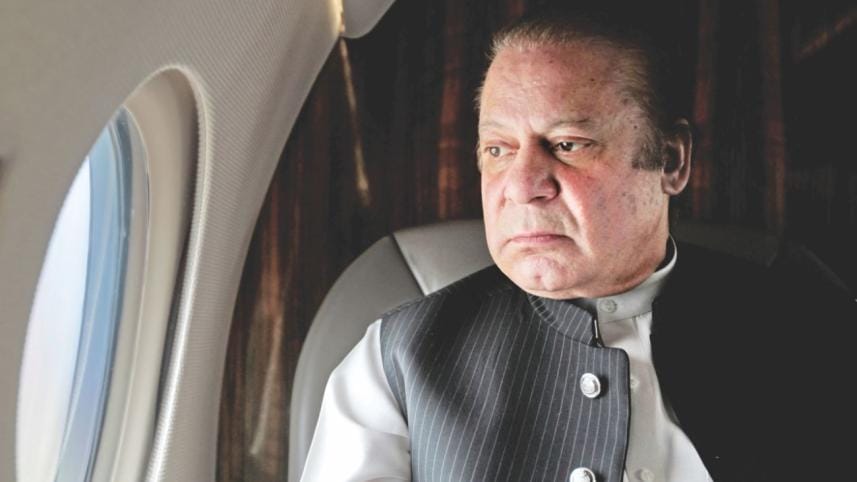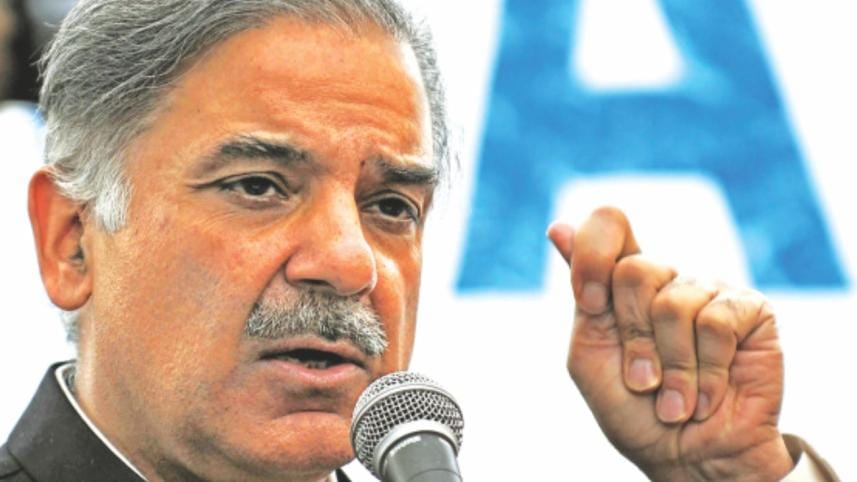Ouster Of Pakistan Prime Minister: Another period of chaos waiting?

The ousting of Pakistan's Prime Minister Nawaz Sharif has left a power vacuum at the top of the nuclear-armed country, yet experts say that in the long run it is unlikely to be destabilising.
Sharif's disqualification Friday by the Supreme Court over corruption allegations denies him the chance of becoming the country's first prime minister to complete a full five-year term.
Yet despite the country's history of military rule, power will likely remain within the hands of a civilian government -- and probably that of Sharif's eponymous Pakistan Muslim League-Nawaz Party, analysts say.
"In a country as volatile as Pakistan, there's good reason to be concerned whenever a prime minister is dismissed," said Michael Kugelman of the DC-based Wilson Centre.
"But my sense is that everything will eventually fall into place -- a successor will be chosen and the current government will serve out its term."
Pakistan has been roiled by military coups and instability for much of its 70-year history.
But recently there has been a surge of optimism in the militancy-plagued developing country, which has seen a dramatic improvement in security and positive economic growth in recent years.
While the 2013 election that brought Sharif to power for a third time was also a powerful symbol of stability, representing Pakistan's first democratic transition from one elected government to another.
Political analyst Hasan Askari said that Pakistan's parliamentary system of government remains unshaken despite the Supreme Court's ousting of a democratically-elected premier.
With Pakistan just a year away from general elections, the question is whether the country's opposition parties can capitalise on Sharif's removal.
Opposition leader Imran Khan has breathlessly pounded his party's anti-graft slogans and called for Sharif's removal as his slow downfall has played out on Pakistan's TV news channels over the last year.
But his Pakistan Tehreek-e-Insaf, which governs one of Pakistan's four provinces, has so far failed to turn itself into a national party.
"(It is PTI) that initiated the case against the prime minister (Sharif), therefore they are going to be the major beneficiary in terms of reputation and credibility," said Askari.
But, he cautioned, the party would benefit most from early elections, while popular opinion is still on its side -- a remote prospect, with the PML-N-dominated National Assembly more likely push for elections to be held as scheduled in June 2018.
"This is a party (PML-N) that has the luxury of not facing a formidable opponent with national clout," said Kugelman.
"This decision is not a game-changer for PTI," agreed senior political analyst Rasul Bakhsh. "The only change is that Mr Nawaz Sharif is no longer a prime minister."

SHAHBAZ SHARIF
Pakistan's ousted prime minister Nawaz Sharif yesterday named his brother Shahbaz as his successor. Born in Lahore in 1950, Mian Mohammad Shahbaz Sharif is the younger brother of Pakistan Muslim League-Nawaz (PML-N) chief and thrice-elected prime minister Nawaz Sharif. He is He is currently serving his third term as Punjab's chief minister. He is an influential businessman and jointly owns Ittefaq Group of Companies. He was also elected president of Lahore Chamber of Commerce and Industries in 1985. Shahbaz was first elected MPA to the Punjab Assembly in 1988. His son, Hamza Shahbaz Sharif, serves as an MNA. He is expected to replace his father as Punjub CM.

SHAHID KHAQAN ABBASI
Shahid Khaqan Abbasi, who is set to become Pakistan's interim prime minister, is the former federal minister for petroleum and natural resources, and a businessman who launched the country's most successful private airline. He is due to be rubber stamped by in a parliamentary vote as prime minister until Sharif's younger brother Shahbaz can be elected to the national assembly and take over the leadership. Educated in the US at George Washington University, he was born in Karachi but is a member of the National Assembly from Murree. Abbasi worked in the US and Saudi Arabia as an electrical engineer before joining politics after his father, a minister in General Zia ul-Haq's government, was killed when an ammunition dump belonging to Pakistan's powerful Inter-Service Intelligence Agency (ISI) exploded in Rawalpindi in 1988. Abbasi has been elected six times as a member of the National Assembly since then, and has previously served as minister for commerce and defence production.



 For all latest news, follow The Daily Star's Google News channel.
For all latest news, follow The Daily Star's Google News channel.
Comments